Agencia Salvadoreña de Prensa Socialista ( SALPRESS )
Solidarizando con la luchas de las Organizaciones de Masas
de los pueblos del mundo.
Agencia Salvadoreña de Prensa Socialista
( SALPRESS ).
Tens of thousands of students and their supporters turn out for a march to mark the 100th day of student protests against tuition fee hikes on May 22. (Salimah Shivji/CBC)
1 of 14
Hide Captionexpand
MONTREAL - Quebec's largest student group
new emergency law,calling for a summer of protests
and acts of civil disobedience.
Play Video
Video shows Montreal police pepper spraying bar patronsCanadian Press 0:49 | 3739 viewsPolice are being criticized over a pepper spray incident that occurred during a student demonstration …
RELATED CONTENT
View Gallery
Protesters opposing Quebec student tuition fee hikes demonstrate in Montreal, Sunday, …- canada-politics - Sun, 20 May, 2012
MONTREAL - Quebec's largest student group has vowed to defy the Quebec government's new emergency law, calling for a summer of protests and acts of civil disobedience.
The C.L.A.S.S.E., the more radical of the province's three main student associations, declared Monday it would continue to encourage protests even if it meant it would lead to harsh financial penalties under the province's Bill 87.
"The special law won't kill the student movement," spokesman Gabrielle Nadeau-Dubois said at a news conference on Monday.
"The fundamental rights under threat today need to be defended."
The student group called for protests at least until classes, which were suspended under the legislation, resume in August. It also launched an appeal for financial assistance for a legal challenge against Bill 78 and to help pay for any fines incurred under the new legislation.
While a recent poll suggested the majority of Quebecers were in favour of the law, the government continues to face stiff opposition from those who argue it's an affront on civil liberties.
A massive demonstration is planned for Tuesday afternoon to mark 100 days since the first group of students walked out of class. A coalition of 140 community groups and unions encouraged people to join the demonstration to denounce the tuition increases and the legislation.
"We decided earlier this year that the tuition increases should be a priority," Veronique Laflamme, a spokeswoman for the coalition, said in an interview.
"But now, with the introduction of Bill 78, we find it even more important to participate in the protests."
Several of the coalition members have already provided financial support for the student protests, she said.
Meanwhile, the international hacker group Anonymous hacked into the Quebec government public security's website today, the latest in a series of apparent cyber attacks against the province. A post on the hacked web page warned the government to be fearful of the group.
"We don't forgive," the post said. "We don't forget."
Tensions were high during the nightly protests over the weekend after the bill was passed last Friday. More than 300 people were arrested on Sunday night alone and at least 20 were injured, including 11 police officers — though none seriously. Another protest was scheduled for Monday night, for the 28th day in a row.
Bill 78 lays out regulations for demonstrations over 50 people, including giving eight hours' notice for a protest itinerary. Individual organizers and student groups could face stiff fines if they don't comply. The C.L.A.S.S.E. said it had no plans to do so.
Penalties range between $7,000 and $35,000 for a student leader and between $25,000 and $125,000 for unions or student federations. In addition, the legislation provides for fines for any individual who prevents someone from entering an educational institution. The law put the current academic session on hold until August for striking students, which make up less than one-third of Quebec post-secondary students.
LAS FUERZAS REPRESIVAS DEL CAPITALISMO E IMPERIALISMO
SON DE LA MISMA MENTALIDAD BURGUESA VIOLENTISTA
TERRORISTA -OTRO- EJEMPLO DE "DEMOCRACIA" EN EL SALVADOR :
SON DE LA MISMA MENTALIDAD BURGUESA VIOLENTISTA
TERRORISTA -OTRO- EJEMPLO DE "DEMOCRACIA" EN EL SALVADOR :
EL FASCISMO Y LOS FASCISTOIDES NOS REPRIMEN MASIVAMENTE
Y NOS IDENTIFIQUEMOS O NO CON NUESTRAS SIGLAS Y BANDERAS
PERO SON NUESTROS SIMBOLOS LA LEGITIMIDAD REVOLUCIONARIA.
Y NOS IDENTIFIQUEMOS O NO CON NUESTRAS SIGLAS Y BANDERAS
PERO SON NUESTROS SIMBOLOS LA LEGITIMIDAD REVOLUCIONARIA.
MONTREAL - Quebec student leaders signalled on Saturday they may be ready to compromise on the core of their dispute with the government — the province's plan to raise tuition fees.
That didn't stop thousands from taking to the streets of Montreal for a 33rd night in a row in a protest that again made it clear the conflict has moved way beyond the issue of education.
One student leader, Martine Desjardins, said both sides must be prepared to compromise for the months-long crisis to be resolved.
Another, Leo Bureau-Blouin, made headlines on Saturday when he told CBC Radio he would be willing to accept some form of tuition increase. Later in the day Bureau-Blouin tried to clarify his comments, saying the students were willing to make adjustments if the government was prepared to do so as well.
"If the government is prepared to move, there could be an area where we can find common ground," he told The Canadian Press.
Leaders of Quebec's three main student associations could meet the province's education minister as early as Monday.
While the proposed hikes would still leave Quebec with some of the lowest tuition rates in Canada, the issue has flared into a clash of ideologies that goes beyond the debate over education.
The nightly demonstrations continued Saturday with thousands of people pouring into the streets of Montreal, with several neighbourhood protests around the city. The focus at the marches has shifted from the proposed tuition increases to Bill 78, Quebec's controversial emergency law designed to limit the scope of student demonstrations.
One protester said he isn't necessarily opposed to the tuition increases, but feels the government has gone too far in its efforts to end to the conflict.
"Everybody has to stand up at this point," said Mark Sabourin, 26, who drove from the suburbs for the demonstration with his wife and three kids.
"I believe what they're fighting for is deeper now. It's about the law, it's about the government's tactics, it's about taking back the streets."
The mood was festive Saturday, and the crowd included many families, as people again banged on pots and pans. As in previous protests, Saturday's march was immediately declared illegal because no route was provided, but it continued for hours, with no signs of vandalism or violence.
Early Sunday morning police said they had arrested four protesters, including two they accused of hitting a police horse.
The latest round of demonstrations came as Bill 78 drew more criticism — this time from Amnesty International. The human-rights organization said the legislation violates freedom of speech, assembly and movement in breach of Canada's international obligations.
''Bill 78 is an affront to basic freedoms that goes far beyond what is permissible under provincial, national or international human rights laws,'' Amnesty spokesman Javier Zuniga said in a statement.
''It is unreasonable and unacceptable to require citizens to apply to the authorities in advance any time they wish to exercise a basic human right.''
The organization first became involved in the conflict in April, when it expressed concern over the tuition increases and called on the government to tone down police measures.
Police presence on Saturday was minimal. The peaceful demonstrations were in stark contrast to a week earlier, when there were several violent clashes between protesters and police, and a small group built a bonfire out of plastic construction cones in the middle of a downtown intersection.
Julie Pelletier, 44, said she wasn't sure a resolution on tuition would end to the demonstrations.
"It's so much more," she said. "It's the tuition increases... it's also the government in general. There's a lot of people like me that came here, alone, and brought a pot and a spoon."
The students have called for a tuition freeze but the government has flatly rejected that. The Charest government originally announced it would hike tuition fees by $325 a year over five years, beginning this coming September. That would have boosted annual tuition to nearly $3,793 by 2017.
The government later offered to spread the hikes over seven years, which works out to annual increases of about $254, and to cut some other fees.
- with files from Marie-Michele Sioui



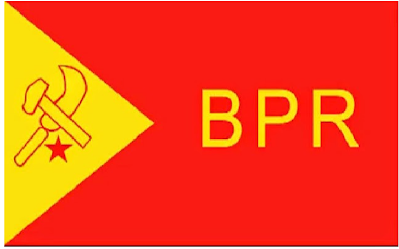







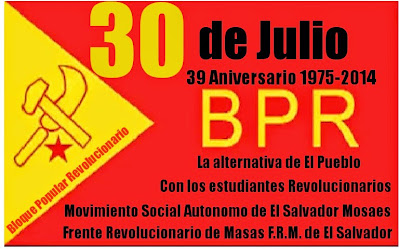







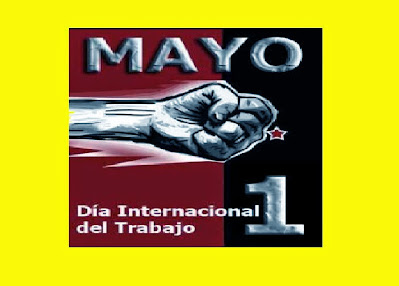
















































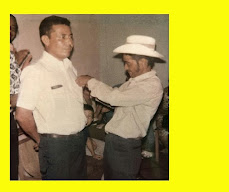








![Maestra Melida Anaya Montes [ Ana Maria ] Con la Fusion en el FMLN Traiciono al Proletariado](https://blogger.googleusercontent.com/img/b/R29vZ2xl/AVvXsEikV8GpE6suMbwZ8IUIxhKmoKOikk8PLBIBlEN45EGHAFpQkgkYEMYD_wlYn-zI7QBw2PkizM7cKvqFwjoRB-1Zd6Jm-o-P3vUxi2XXAUMRUXdroqKkLRMmDJFJejYo2z3pDCCzqB_sEGOS/s229/ana.jpg)




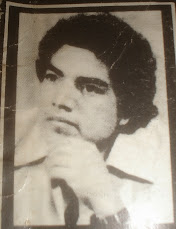


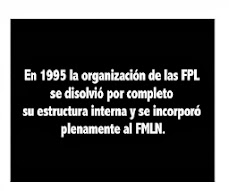



































![36 años de impunidad en asesinato de Andres Torres Sanchez [ Toño ]](https://blogger.googleusercontent.com/img/b/R29vZ2xl/AVvXsEhL9FwGvdbrHK3CdPL0T8T00yob7kMxKL77zdygFzZgNixrp6UTRdTB8nycjJncxydFSetDobD06RdlpodaTHPWbHkYWfX7T7pemZagNoJqFKgtqPTDaGis1oGfjxqXBzK6noVMy5x1EaaF/s238/mis+fotografias+el+salvador+tono.jpg)















No hay comentarios:
Publicar un comentario